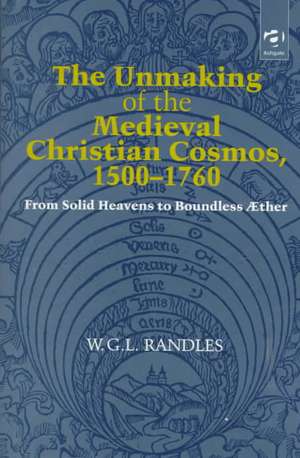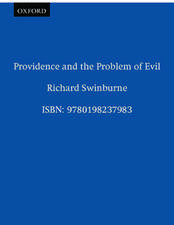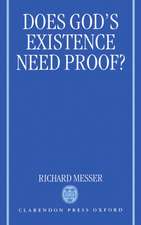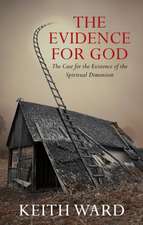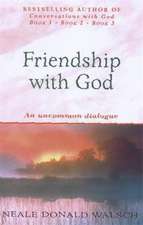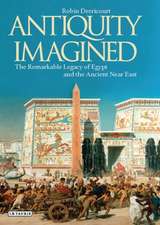The Unmaking of the Medieval Christian Cosmos, 1500–1760: From Solid Heavens to Boundless Æther
Autor W.G.L. Randlesen Limba Engleză Hardback – 28 mai 1999
Preț: 768.82 lei
Preț vechi: 1030.12 lei
-25% Nou
Puncte Express: 1153
Preț estimativ în valută:
147.15€ • 151.65$ • 124.23£
147.15€ • 151.65$ • 124.23£
Carte tipărită la comandă
Livrare economică 03-17 martie
Preluare comenzi: 021 569.72.76
Specificații
ISBN-13: 9781840146240
ISBN-10: 1840146249
Pagini: 296
Dimensiuni: 156 x 234 mm
Greutate: 0.71 kg
Ediția:1
Editura: Taylor & Francis
Colecția Routledge
Locul publicării:Oxford, United Kingdom
ISBN-10: 1840146249
Pagini: 296
Dimensiuni: 156 x 234 mm
Greutate: 0.71 kg
Ediția:1
Editura: Taylor & Francis
Colecția Routledge
Locul publicării:Oxford, United Kingdom
Cuprins
Contents: Introduction; The medieval foundations of the Christian cosmos; Renaissance and Reformation challenges to the medieval cosmos and the response of the Counter-Reformation; The challenge of applied optics; The reception of new astronomical evidence; The challenge of infinity; The Empyrean in the late Renaissance and the Baroque age; The cosmos in university textbooks; The impact of Cartesianism and Copernicanism and the end of the medieval cosmos; Conclusion; Bibliography; Additional bibliography (2004); Index.
Recenzii
’Randles tells this story with much detail, and his account is to be commended for its close attention to sources and its clarity of presentation.' International Review of Biblical Studies, Vol. 45 'As a sourcebook...Randles’s book is excellent, filled with extensive quotations and citations of relatively obscure 16th- and 17th-century authors. It offers a rich, new perspective on parts of the transition to the heliocentric cosmology.' Physics Today ’...an excellent study of the philosophical and theological dimensions of the decline of Aristotelian/Ptolemaic cosmology and the emergence of new ideas about celestial matter. His study draws on an impressive range of authors ...this book is required reading...this is intellectual history in fine form... highly recommended.’ ISIS, 92: 1 ’Randles has written an interesting and well documented investigation... The volume is more than a history of astronomy; it is a comprehensive analysis of philosophical and theological reflection on the nature of the universe.... Faced with the new Copernican astronomy, Catholic theologians and philosophers, including many Jesuits, from the sixteenth to the eighteenth centuries were forced to revise received wisdom from the medieval authors. Randles wonderfully describes how they did so.’ Archivum Historicum Societatis Iesu, Rome, vol. 70 '... a valuable work...that contains much useful information about a wide range of authors treating important cosmological ideas.' Journal for the History of Astronomy, Vol. 31 '... a very careful and sound guide to early modern cosmology and to the thought of numerous scholars, philosophers, theologians and astronomers... a stimulating study that offers new insights into the transition from medieval to early modern science.' Journal of Ecclesiastical History Vol.53/3
Descriere
From the early Christian era and throughout the Middle Ages, theologians exerted considerable effort to achieve a synthesis bringing together Greek cosmology and the Creation story in Genesis. In the construction of the medieval Empyrean, the dwelling place of the Blessed, Aristotle’s philosophy proved of critical importance. From the Renaissance on, largely in revolt against Aristotle, humanist Bible critics, Protestant reformers and astronomers set themselves to challenge the medieval synthesis. Especially effective in the ensuing dismantlement, from the 16th to 18th centuries, was the pagan concept of an infinite universe, resuscitated from Antiquity by the Italian philosophers Bruno and Patrizi. Indirectly inspired by the latter, the doctrines of the French pre-Enlightenment thinkers Descartes and Gassendi spread throughout Latin Catholic Europe in spite of considerable resistance. By the middle of the 18th century the Roman ecclesiastical authorities were brought to acknowledge an end to the medieval cosmos, allowing Catholics to teach the theory of heliocentrism.
